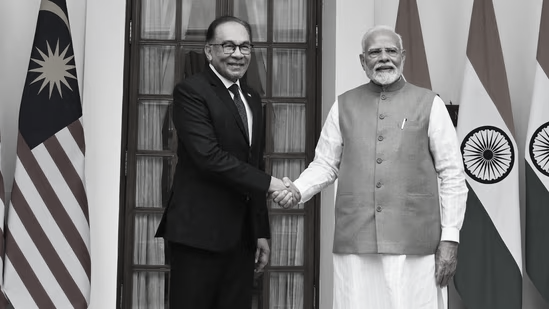
PM Modi to skip in-person participation at Malaysia ASEAN summit, to attend virtually
Prime Minister Narendra Modi announced that he will participate virtually in the 47th ASEAN-India Summit, scheduled in Kuala Lumpur from October 26 to 28, citing ongoing Deepavali celebrations in India.
In a message shared on X, PM Modi said, “Had a warm conversation with my dear friend, Prime Minister Anwar Ibrahim of Malaysia. Congratulated him on Malaysia’s ASEAN Chairmanship and conveyed best wishes for the success of upcoming Summits. I look forward to joining the ASEAN-India Summit virtually, and to further deepening the ASEAN-India Comprehensive Strategic Partnership.” Malaysian Prime Minister Anwar Ibrahim confirmed that PM Modi would attend virtually due to the Deepavali festivities, expressing respect for the decision and extending greetings for a happy Deepavali to PM Modi and the people of India.
External Affairs Minister S. Jaishankar will represent India at the summit in Kuala Lumpur in person, engaging directly with ASEAN leaders and other key partners, ensuring India’s active diplomatic presence on the ground while PM Modi participates virtually.
The Indo-Pacific region is witnessing increasing uncertainties due to China’s growing assertiveness, territorial expansions, and strategic posturing. At the same time, the United States is undertaking a strategic recalibration, aiming to strengthen alliances, balance China’s influence, and secure critical trade and security interests in the region. In this evolving environment, ASEAN has emerged as a central platform for dialogue, coordination, and regional stability. For India, ASEAN remains a cornerstone of the Act East Policy and the broader Indo-Pacific vision.
As emphasized during the 2018 Shangri-La Dialogue, India seeks to promote a free, open, inclusive, and resilient Indo-Pacific, anchored in rules-based order, maritime security, sustainable development, and enhanced connectivity. Engaging with ASEAN allows India to bolster regional cooperation, address shared security and economic challenges, and deepen partnerships with Southeast Asian nations while balancing broader geopolitical pressures.
ASEAN, established in 1967, plays a central role in promoting regional stability, economic integration, and diplomatic dialogue across Southeast Asia. Its platform has become increasingly important for shaping Indo-Pacific strategies and fostering multilateral cooperation.The summit will host leaders from all 10 ASEAN member states, along with strategic partners including China, Japan, and the United States. Discussions are expected to focus on regional cooperation, sustainable development, trade facilitation, maritime security, and addressing shared geopolitical and economic challenges. India, a formal dialogue partner of ASEAN since 1992, has steadily deepened its engagement through initiatives like the Act East Policy and annual summits. India’s decision to participate virtually, with EAM Jaishankar attending in person, highlights its respect for domestic cultural observances while maintaining active diplomatic engagement.
The summit offers an opportunity for India to reaffirm its strategic priorities, strengthen ties with ASEAN nations, and consolidate its vision for a free, open, inclusive, and resilient Indo-Pacific. Through active participation in ASEAN-led forums and potential trade agreements with key partners like the United States, India continues to navigate complex geopolitical and economic landscapes, reflecting a careful balance of domestic priorities, strategic foresight, and the pursuit of regional stability and economic growth.
